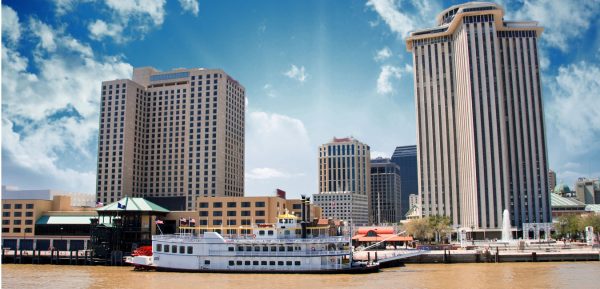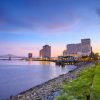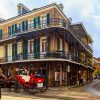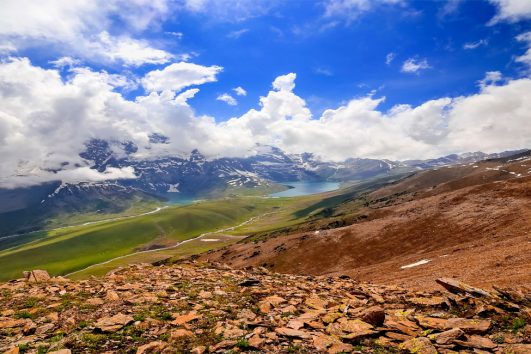New Orleans, often referred to as “The Big Easy” or simply “NOLA,” is a vibrant and culturally rich city located in the southeastern part of the state of Louisiana, USA. This iconic city is known for its unique blend of history, culture, and entertainment, making it a beloved destination for travelers from around the world.
History of New Orleans
New Orleans has a fascinating and storied history that dates back to its founding in 1718 by French explorers. Over the centuries, the city has been shaped by French, Spanish, and Creole influences, creating a distinctive cultural tapestry. It played a pivotal role in the history of the United States, from its colonial past to its prominence as a hub of the American South.
The Louisiana Purchase in 1803 brought New Orleans under American control, expanding its significance as a port city and trade center. The city also witnessed significant events during the Civil War and Reconstruction era, leaving a lasting impact on its social and political landscape.
Geography and Climate
Situated along the Mississippi River, New Orleans boasts a strategic location that has historically made it a vital trading post. The city’s topography includes low-lying areas and swamplands, leading to unique architectural features such as raised houses and levees to protect against flooding. The climate in New Orleans is characterized by hot and humid summers, mild winters, and occasional hurricanes due to its Gulf Coast location.
Culture and Entertainment
New Orleans is world-renowned for its rich cultural heritage. It’s often called the birthplace of jazz, with its streets filled with the soulful sounds of musicians. The city’s cuisine is equally celebrated, featuring dishes like gumbo, jambalaya, beignets, and po’ boys, influenced by Creole, Cajun, and French culinary traditions.
Festivals and celebrations are a way of life in New Orleans, with Mardi Gras being the most famous. This vibrant and colorful event, with its parades, costumes, and music, draws millions of visitors every year. Additionally, the city hosts numerous other festivals throughout the year, celebrating music, food, and culture.
Landmarks and Attractions
New Orleans is teeming with iconic landmarks and attractions. The French Quarter, with its historic architecture and lively atmosphere, is a must-visit. Jackson Square, home to the St. Louis Cathedral, is a symbol of the city’s cultural and religious heritage. A ride on the Steamboat Natchez offers a glimpse into the city’s maritime history.
Nature lovers can explore Audubon Park and City Park, while history enthusiasts will be captivated by the National WWII Museum, one of the top-rated museums in the world.
Economy and Industry
The Port of New Orleans is a major economic driver, handling a substantial portion of the nation’s imports and exports. Tourism also plays a significant role in the city’s economy, attracting visitors with its unique culture, cuisine, and festivals. Oil and gas, higher education, and the arts contribute to the diverse economic landscape of New Orleans.
Social Issues and Challenges
New Orleans faced significant challenges, particularly in the aftermath of Hurricane Katrina in 2005. The devastating hurricane and subsequent flooding exposed social, economic, and infrastructure issues in the city. Rebuilding efforts have been ongoing, with a focus on improving resilience and addressing long-standing challenges.
Transportation
New Orleans has a well-connected transportation network, including roads, highways, and public transit options. The Louis Armstrong New Orleans International Airport serves as a major gateway for travelers arriving by air.
Notable Figures
The city has been home to many notable figures, including the legendary jazz musician Louis Armstrong, the voodoo priestess Marie Laveau, and the acclaimed playwright Tennessee Williams.







Tour Reviews
There are no reviews yet.
Leave a Review